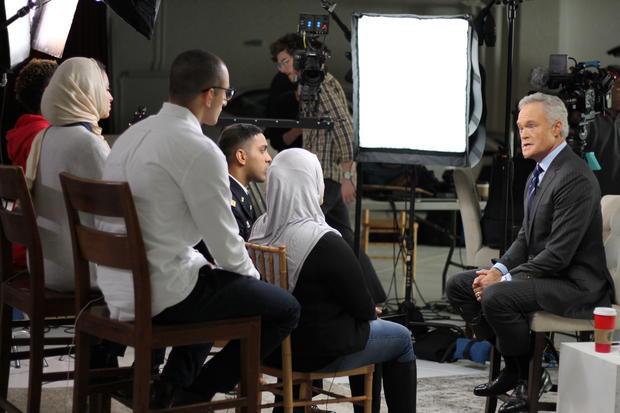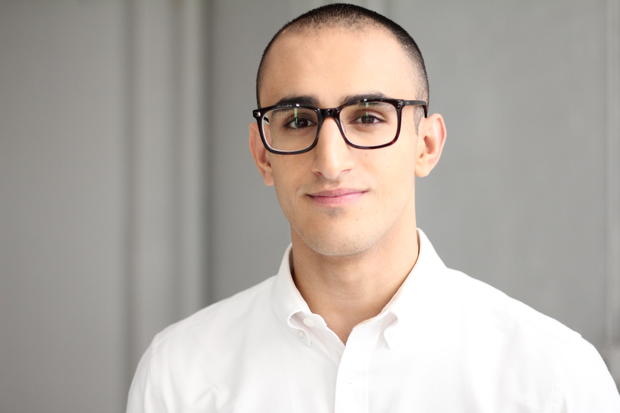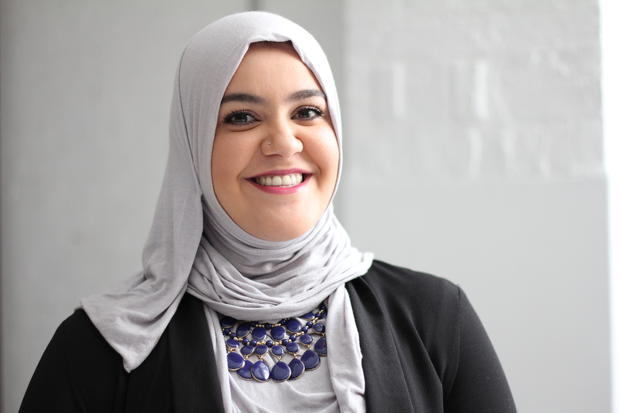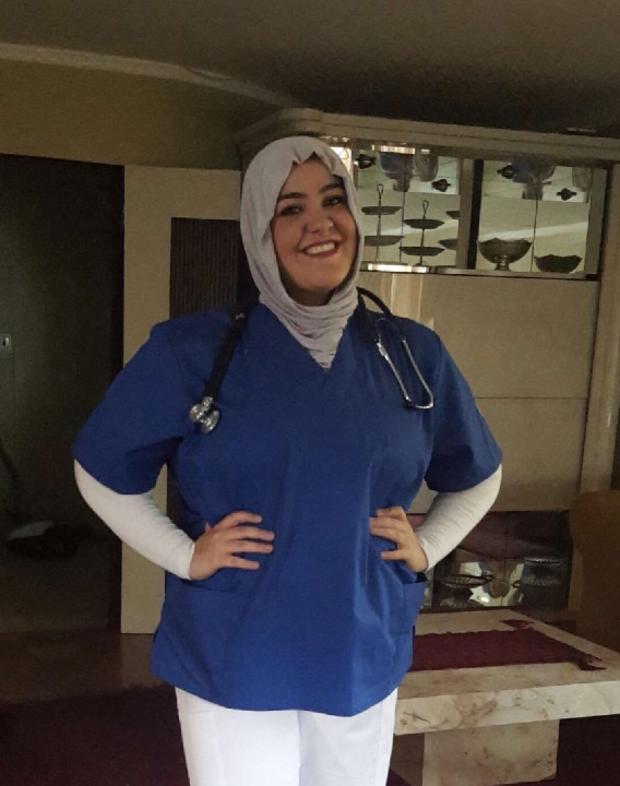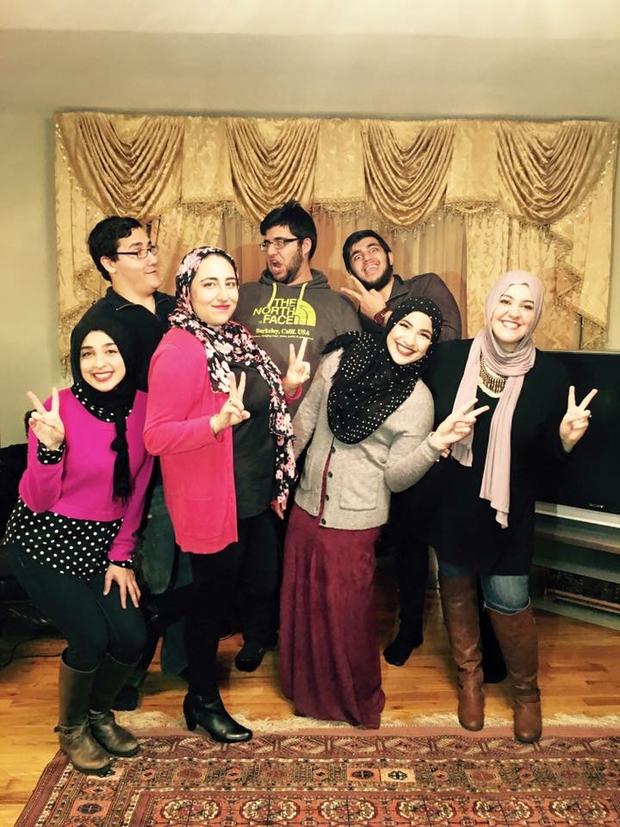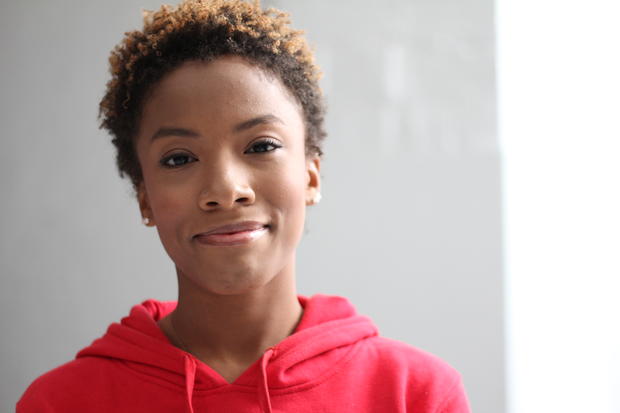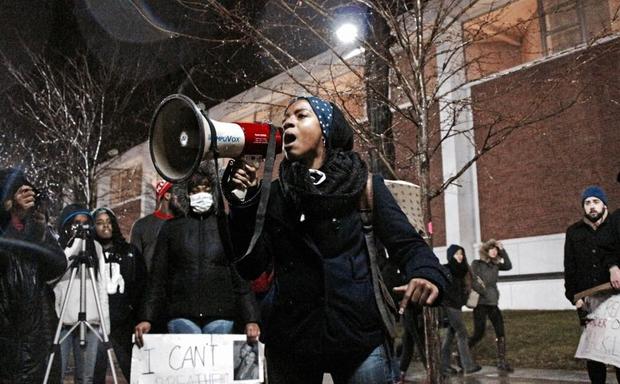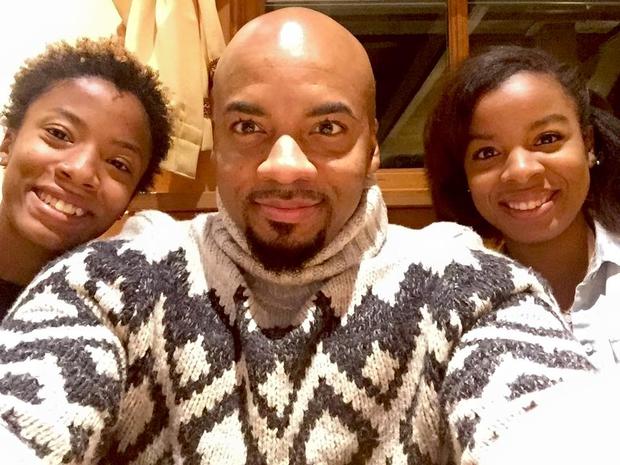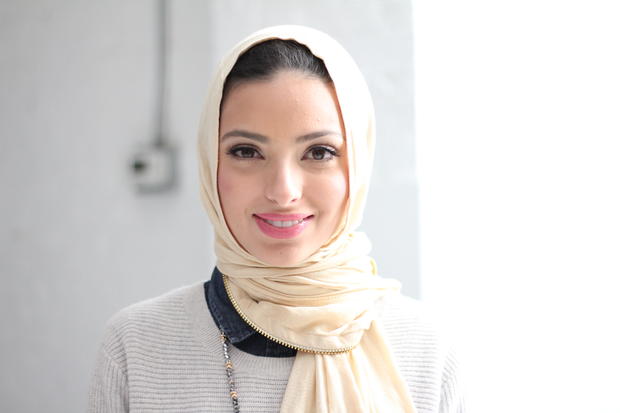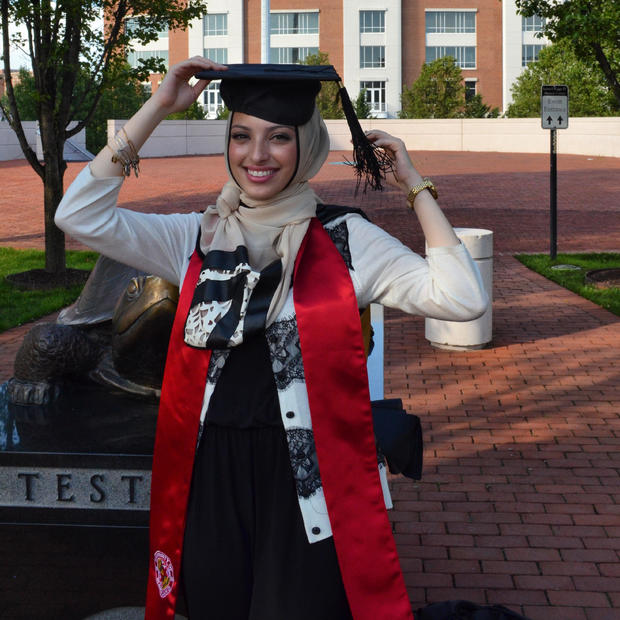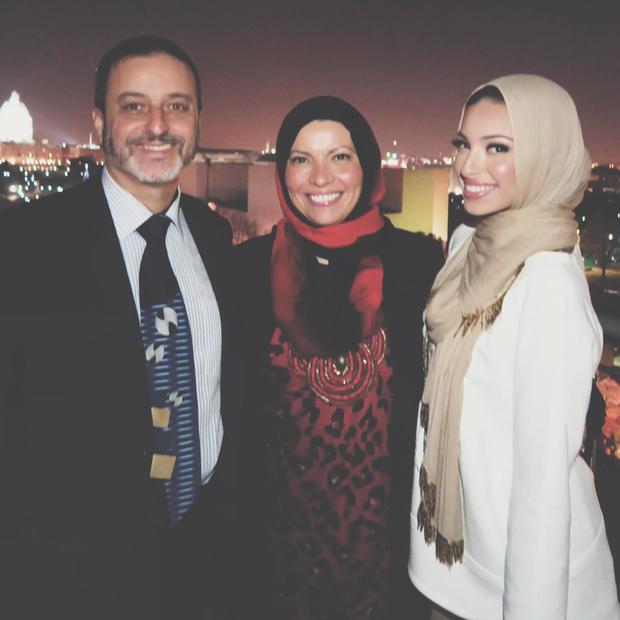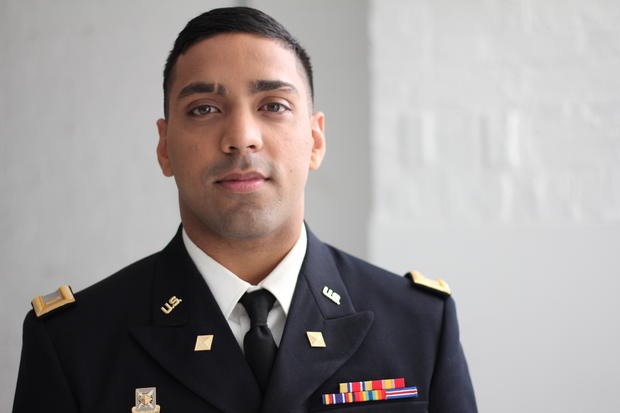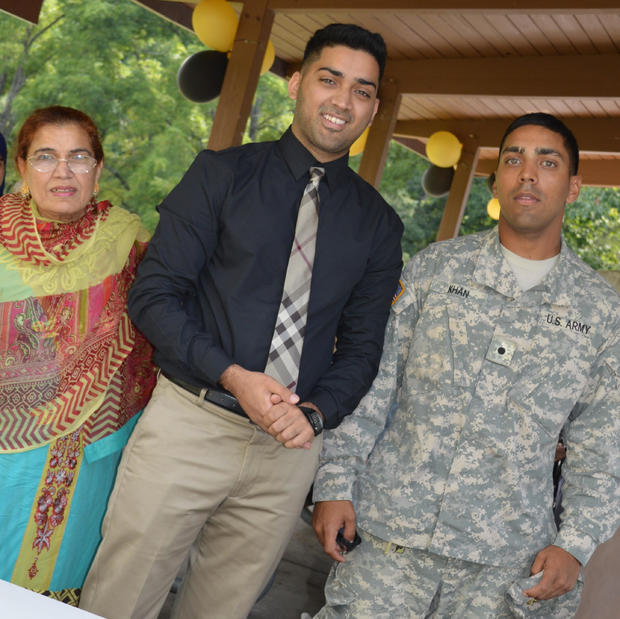Growing up Muslim in the U.S.
In light of the recent rhetoric about people of the Muslim faith in the U.S. and around the world, including Donald Trump's proposed ban on Muslims entering the country, CBS News sat down with five millennial Muslims to discuss what it was like growing up in post-9/11 America.
All five panelists are between the ages of 18-24, with different experiences and backgrounds, but similar realities. From a U.S. Army Lieutenant, to a nursing student, to a budding journalist, these young Muslims want the world to know that they are everyday Americans.
These are their stories.
Rafat "RJ" Khalaf
Rafat Khalaf, or "RJ," is a sophomore at New York University majoring in Global Liberal Studies. He was raised in Las Vegas by his dad, from New Mexico, and his mother, from California. Both sets of grandparents are from Palestinian territories, and ran successful businesses in the U.S. He comes from a family that feels deeply American, but is often told to "go back where he came from."
RJ is not always visibly identifiable as Muslim, but feels most vulnerable during prayer in public places - he was once harassed while washing up in a men's room before praying in an airport.
"Why can Tim Tebow kneel down to pray after touchdowns, but when a Muslim player bows his head to prayer after a touchdown, he gets penalized," RJ says, referring to an incident in September 2014 involving Kansas City Chiefs safety Husain Abdullah.
Rafat Khalaf at a charity event
RJ's favorite quote from the Quran reads: "And (in all your dealings) give full measure and weight, with equity; (however,) we do not burden any human being with more than he is well able to bear; and when you voice an opinion, be just, even though it be (against) one near of kin." (Quran 6: 150-152)
"There is a lot of change and uncertainty from many angles, and this verse relaxes me and helps me put things into perspective," explained RJ.
Here, RJ participates in a male pageant put on by his high school to raise money for a local charity.
Rafat Khalaf in high school
RJ's mission is to change the perception of Muslims in America, and he hopes to establish youth leadership programs in the Gaza strip.
Here, RJ (left) is pictured with his best friend Jordan after their high school graduation. "One of the greatest parts about our brotherhood is that Jordan is Jewish while I am Muslim. It is a beautiful example of peaceful coexistence despite common misconceptions."
Sameya Omarkheil
Sameya Omarkheil is a 22-year-old student at St. Paul's School of Nursing in Queens, New York. After the Nov. 17, 2015 Paris attacks, Sameya was on her way to a final exam when she was intentionally tripped by a white man on the street. He threw his cigarette butt near where she fell, stepped on it and yelled in her face: "Go back to where you came from!"
On her way home from the exam, she took her hijab off. "If that happened to me at eight in the morning, I couldn't imagine what would happen at night," said Sameya. "We feel like prisoners in our home. We are fearful of going out."
Sameya Omarkheil in nurse scrubs
Sameya's favorite quote from the Quran reads: "Real believers are those who walk with modesty; and when the foolish ones address them with harsh words, they reply with peace!" (Quran 25:63)
Sameya currently works at a CVS Pharmacy, and was recently confronted by a regular customer. The woman told her she didn't want Sameya's help "because of the thing on your head." Instead of shying away, Sameya spoke with the customer about the tradition and meaning of head coverings.
Her mission is to shed light on the realities of Islam by educating those who may not understand her religion.
Sameya Omarkheil with her family
Sameya (front far right) was born and raised in Long Island, New York. She comes from a big Afghani family: she has two sisters, two brothers, three uncles, and two aunts -- all of them are married with kids.
Her parents moved to the U.S. from Afghanistan in the 1980s, but put religion aside to focus on their children. When Sameya's older sister became more religious in college, Islam was reincorporated into the entire family.
Taqwa Brookins
Taqwa Brookins is a 19-year-old sophomore at Rutgers University in New Jersey. Her parents met at Rutgers and converted to Islam together. Taqwa started wearing a hijab when she was 13, but stopped wearing it last March for a number of reasons - one being that she wanted to make more friends.
Once she removed her hijab, Taqwa noticed an immediate change in how people treated her. Before, people avoided sitting next to her on the bus or subway unless it was the only seat left. She would play popular music loudly in her headphones to assure people she was "normal," not a threat. Classmates would never ask to borrow notes, but now they approach her much more.
Taqwa Brookins at a Black Lives Matter protest
Taqwa's favorite verse from the Quran reads: "A believer, for another believer, is like a single body. If one of the organs is in pain all other parts of that body are also troubled."
She believes she faces discrimination on three fronts - not just from anti-Muslim sentiments and systemic racism in the U.S., but also from within the Muslim community. Taqwa feels that the Muslim community as a whole has not supported black Muslims, despite teachings that say if one Muslim faces oppression, they all do.
Taqwa Brookins with her family
One incident that had a large impact on Taqwa happened when she was traveling with her family to Saudi Arabia. Her father went through security first, but her mother--who wears a hijab--was kept back by airport security. Security did not recognize her father as part of the family, perhaps because he is not visibly Muslim.
Though it may seem small to others, Taqwa says she will never forget the look on her mother's face when she was held hack. "Some things stay with you forever."
Here, Taqwa (left) is pictured with her dad and sister.
Noor Tagouri
Noor Tagouri is a 22-year-old journalist living in Washington, D.C. She was raised in Maryland, in a town she describes as "extremely white and conservative." Noor was a self-described "undercover Muslim" for most of her life, refusing to wear a hijab until she was in 10th grade.
Until she entered high school, Noor and her cousin were "the only Muslims in the entire school." She remembers waiting until all her classmates turned in their tests so she could put hers at the bottom to hide the "Do you speak a second language?" section, where she would have to write "Arabic."
Now, Noor is a proud Muslim. She has tens of thousands of social media followers, and has done motivational speeches across the world to encourage others to pursue their passions.
Noor Tagouri on graduation day
After the Paris and San Bernardino attacks, Noor saw a post on Facebook from her best friend's mom. The mother had written: "In Islam you have to die for Allah. The God I worship died for us."
Noor says the post deeply upset her. Her friend's mother has known Noor, and her family, for most of her life. Noor knows her best friend's mother isn't alone in her misguided beliefs. Her favorite quote from the Hadith, the teachings of the Prophet Muhammad, reads:
"Allah, Blessed and Exalted is He, says...'O son of Adam, even if you were to come to Me with sins nearly as great as the earth, and then you were to meet Me after death, not worshiping anything besides Me, I would bring you forgiveness nearly as great as the earth.'" [Tirmidhi]
Noor Tagouri with her family
Noor's parents are both from Libya. Her mother moved to the U.S. when she was 11, and her father arrived when he was 27 for medical school. In 10th grade, her family moved to Bowie, Maryland and her parents enrolled her in a private Muslim high school.
But Noor remembers being embarrassed of her religion before they made the move to Bowie. If her mother would chaperone elementary school trips, Noor would "pray she would forget to put her hijab on," because her classmates would ask why her mom wore "that thing on her head."
Here, Noor is pictured with her parents.
Lt. Shahn Khan
Shahn Khan is a 24-year-old Lieutenant in the U.S. Army. He was born in the United States, but his family moved back to their hometown in Pakistan shortly after he was born. When he returned to America around the age of 9, he became fully immersed in American culture. Lt. Khan played football in high school and went on to play in college. He was the first in his family to go to college.
When he joined the military, Lt. Khan says that some of his friends and family initially could not understand his decision. "A lot of my Muslim friends and family were scared," he explained. "I remember someone asking 'Why would you fight for the country that's killing Muslims?'"
But Lt. Khan says his decision was simple. "I wanted to become a leader and help people who couldn't help themselves."
Lt. Shahn Khan as a child
Lt. Khan was in 5th grade when the 9/11 attacks happened. He remembers from that moment on, as a young Muslim, "everyone was looking at you different, people were scared of you."
Growing up, friends, coaches, and even teachers would use the term "terrorist" to make fun of him. After the Paris and San Bernardino attacks, Lt. Khan says he's confronted close friends who had posted hateful or misguided posts online about Muslims - something he never imagined he would have to do.
Lt. Shahn Khan with his family
Lt. Khan's favorite quote from the Quran reads: "Help each other in righteousness and piety, but do not help one another in sin and transgression." (Quran 5:02)
Lt. Khan (right) hopes to be deployed to the Middle East to help educate Muslims in areas where they are being lured by groups like ISIS. He believes the number one problem with the spread of radical ideology is education, and that if he can teach uneducated Muslims about the United States he has grown to love, he can make a difference.
Here, Lt. Khan is pictured with his mother and brother.
